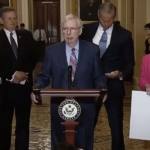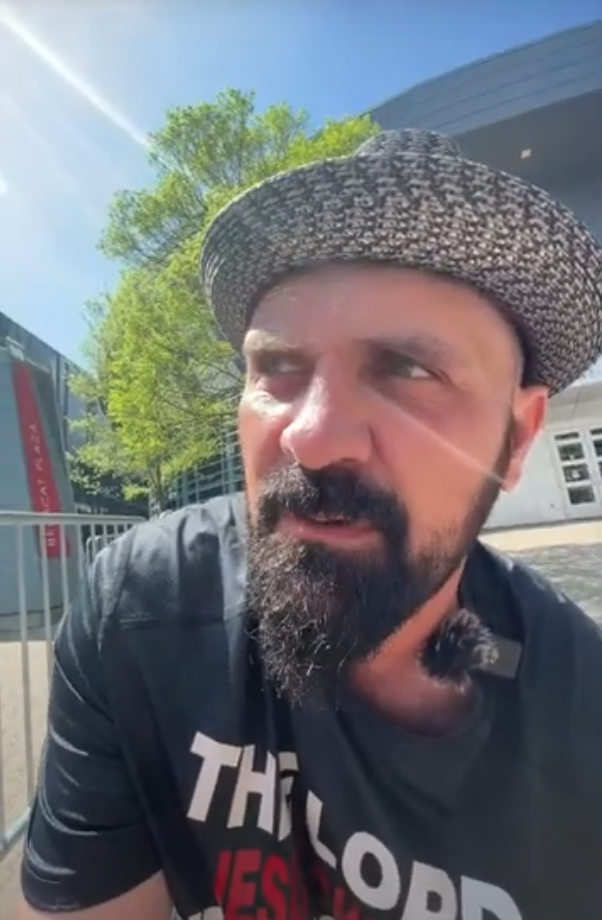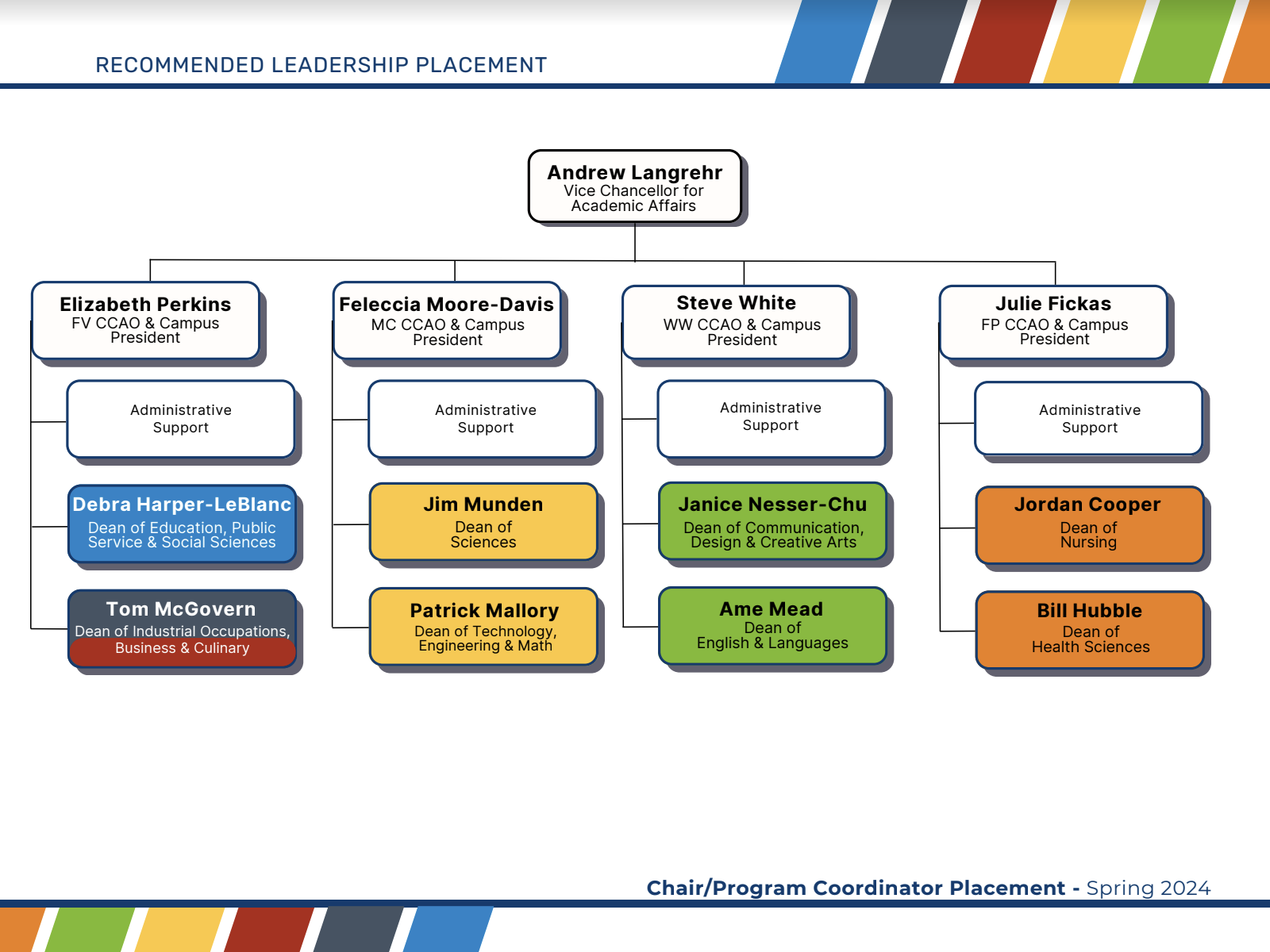Politics 101: The primaries in motion
By: Brittney Farrow
Opinions Editor
By: Alex White
Photo Editor
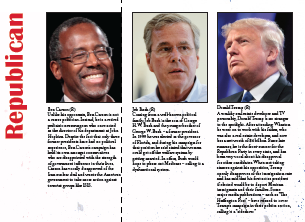 It is statistically proven that young voters make up around 21 percent of the voting population. With one-fifth of all voters belonging to the 18-29 age group, they are a dominant force in numbers that have the potential to be not only influential, but to make or break a politician’s chances at entering the White House.
It is statistically proven that young voters make up around 21 percent of the voting population. With one-fifth of all voters belonging to the 18-29 age group, they are a dominant force in numbers that have the potential to be not only influential, but to make or break a politician’s chances at entering the White House.
According to Rock the Vote, a political, non-profit campaign that aims to use pop culture to bring young voters to the polls – there will be 86 million millennials voting in the 2016 presidential elections; however, in a survey conducted by the Institute of Politics that was released to the public in April 2014, only 23 percent of them had committed to placing a vote in November’s midterm elections. In contrast, at the 2004 elections 70 percent of those between 45 and 59 voted, while 73 percent of those aged between 60 and 74 did. Additionally, 69 percent of those 75 and older also showed up at the polls to place their ballots – making the young vote the least-represented group in politics.
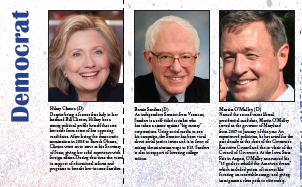 During the 2012 presidential elections, Barack Obama depended on his advantage with young voters to make up for the lead Mitt Romney had with the 45 and older age group. Young voters are the most diverse, and the representation of minorities within that group has expanded dramatically in the last 20 years. Amongst voters 30 and under, 18 percent identify as Hispanic, 17 percent identify as African American, and 7 fall into the mixed-race or other category. While the percentage of white voters dropped 16 points amongst those 18-29, the majority of older voters – at 76 percent – are still white, and that number has dropped only 6 points in recent years. Research done by the Pew Research Center also supports the claim that younger voters are less likely to be religious, which impacts the chances of politicians who take a stand against abortion and gay marriage — especially since, according to “The Huffington Post”, 65 percent of Americans say religion plays a role in their daily lives. When compared to their older counterparts, young voters are much more focused on social issues, and the majority of them vote in favor of early-term abortion as well as equal marriage.
During the 2012 presidential elections, Barack Obama depended on his advantage with young voters to make up for the lead Mitt Romney had with the 45 and older age group. Young voters are the most diverse, and the representation of minorities within that group has expanded dramatically in the last 20 years. Amongst voters 30 and under, 18 percent identify as Hispanic, 17 percent identify as African American, and 7 fall into the mixed-race or other category. While the percentage of white voters dropped 16 points amongst those 18-29, the majority of older voters – at 76 percent – are still white, and that number has dropped only 6 points in recent years. Research done by the Pew Research Center also supports the claim that younger voters are less likely to be religious, which impacts the chances of politicians who take a stand against abortion and gay marriage — especially since, according to “The Huffington Post”, 65 percent of Americans say religion plays a role in their daily lives. When compared to their older counterparts, young voters are much more focused on social issues, and the majority of them vote in favor of early-term abortion as well as equal marriage.
In the upcoming primaries, several topics of debate will include proposed plans for the adjustments to college tuition, the possibility of student debt forgiveness and the impact the declining job market has hand on young people – issues that could be affected by the young voter, should they chose not to participate. The election primaries are coming up in the next few months, and will occur for the state of Missouri in March of 2016. The question remains: will young American vote?
With a plethora of information floating around, it can be difficult for young voters – especially those participating in their first election – to keep track of everything they need to know. Understanding terminology can be difficult: what is the Electoral College, and why does it matter? What is the difference between liberals and conservatives? What in the world is an absentee ballot?
Believe it or not, some politicians benefit off of a young voter’s lack of education on political matters. Voters 30 and under make up one-fifth of the voting population, and yet they rarely attend elections at the same rates as their older counterparts. This drastically affects the outcome for both parties; it can be the difference between a red state and a blue state. It can majorly determine who leads the country and who does not.
In order to keep you better-informed, we have assembled an introduction to the upcoming elections. Get to know the candidates and see who is the best choice for you; read through our list of vote-cabulary. Do not waste time trying to ignore political events. Every vote counts, and the more well-versed you are on the issues, the more likely you are to make an impact. Young voters have power, and they can make a difference.
VOTECABULARY:
Electoral College: A group of people, appointed by each state that formally cast votes for both the president and vice president.
Swing States: A state that has a similar level of support for both of the major parties. (Ohio, Iowa, Florida)
Caucus: A meeting of a legislative body who pick the candidates and/or decide polic y for a particular political party
Gerr ymander ing: Means to manipulate the boundaries of the electoral constituency so to favor one party or class.
Delegate: A person who is chosen to represent a local political party at a political convention.
Federal Election Campaign Act (FECA): Passed in 1971, limits the financing of campaigns for federal elections. Requiring candidates and political committees let the public know who financially supports them as well as how they spend it. As well as regulating how that money is spent.
Soft money: Money that is given to a political party with the intention to support voter registration drives, administrative costs and general political party expenses. Though it is often used by the parties to help particular candidates.


